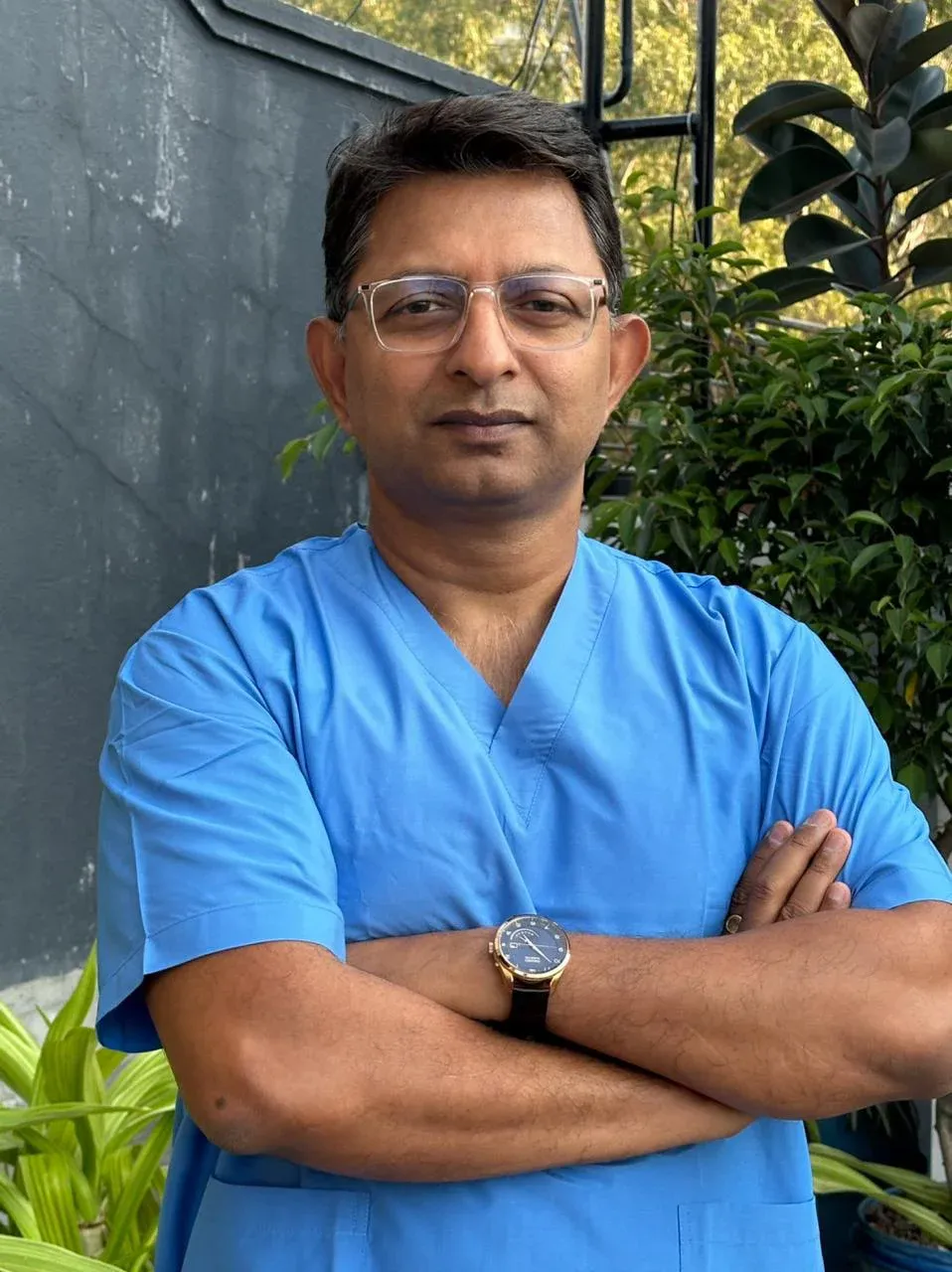
Lymphoma Treatment in Bangalore
A cancer diagnosis can profoundly affect individuals and their loved ones, ushering in a period of uncertainty and concern. Lymphoma, a type of blood cancer, adds to this global health challenge.
Dr. Manish Kumar, a seasoned medical oncologist in Bangalore, emphasizes:
“Cancer is a complex group of diseases characterized by the transformation of normal cells into malignant ones, leading to uncontrolled growth and potential spread. Lymphoma, though serious, is highly treatable—early detection and the right approach significantly improves a patient’s chances of recovery.”

Overview of Lymphoma
Lymphoma is a type of cancer originating in the lymphatic system, part of the body’s immune system. It primarily affects lymphocytes, a white blood cell crucial in defending the body against infections. There are two main categories of lymphoma:
- Hodgkin Lymphoma (HL) is characterized by the presence of Reed-Sternberg cells
- Non-Hodgkin Lymphoma (NHL) encompasses a diverse group of lymphomas without these specific cells.
The distinction between HL and NHL is vital, as it influences the treatment approach and prognosis.
Quick Note: In India, the projected number of newly diagnosed lymphomas in 2020 was 11,230 for Hodgkin Lymphoma (HL) and 41,607 for Non-Hodgkin Lymphoma (NHL).

Lymphoma Symptoms
Common symptoms include:

Risk Factors
Diagnostic Approaches for Lymphoma
Physical Examination: A thorough examination to check for swollen lymph nodes, spleen, or liver.
Biopsy: Biopsy should always be excision biopsy ( complete removal of most accessible single Lymph node)
Blood Tests: Comprehensive blood work can reveal abnormalities in blood cell counts and detect indicative markers.
Imaging Studies: CT scans, PET scans, and MRIs help determine the extent and location of the disease.
Bone Marrow Aspiration and Biopsy: Assessing bone marrow involvement provides information on disease spread.

Treatment Options for Lymphoma
Chemotherapy: The primary treatment for many lymphomas, chemotherapy uses drugs to destroy cancer cells.
Radiation Therapy: High-energy radiation targets and destroys cancerous cells, often used in early-stage HL or localized NHL.
Immunotherapy: Enhances the body’s immune system to recognize and attack cancer cells, with monoclonal antibodies being commonly used.
Targeted Therapy: Drugs designed to target specific molecules involved in cancer cell growth and survival, offering a more focused treatment with potentially fewer side effects.
Watchful Waiting: In select cases of slow-growing lymphomas without symptoms, a period of active surveillance may be recommended before initiating treatment.
Dr. Manish Kumar, a renowned cancer specialist in Bangalore, says:
“Combining various treatment modalities, tailored to the patient’s specific conditions like “Follicular Lymphoma “, can significantly enhance the chances of successful outcomes.”
Why Choose Dr. Manish Kumar?
Expert in Medical and Hematological Oncology: His specialization in both medical and hematological oncology makes him highly proficient in diagnosing and treating complex lymphoma cases.
Advanced Treatment Modalities: Kumar stays at the forefront of oncology, utilizing the latest chemotherapy, immunotherapy, and targeted therapy techniques.
Personalized Treatment Plans: He believes that each patient’s condition is unique, offering customized treatment strategies tailored to their specific health needs.
Multidisciplinary Approach: By collaborating with pathologists, radiologists, and hematologists, Dr. Kumar ensures comprehensive and holistic patient care.
Compassionate Patient Care: Beyond medical expertise, he is known for his empathetic approach, supporting patients and their families throughout the treatment process.
State-of-the-Art Facilities: Kumar practices in well-equipped medical centers that provide cutting-edge diagnostic and treatment technologies.
Excellent Patient Outcomes: His commitment to achieving the best possible results is reflected in the high success rate of lymphoma treatments under his care.

What Patients Say- Testimonials
“I was devastated when I was diagnosed with lymphoma. Dr. Manish Kumar and his team not only provided me with world-class treatment but also reassured me at every step. The personalized treatment plan, coupled with his compassionate care, made a huge difference in my recovery journey. Today, I am in remission and forever grateful for his expertise and guidance.”
“When I was diagnosed with Non-Hodgkin Lymphoma, I had no idea what lay ahead. Dr. Manish Kumar explained every detail patiently, giving me confidence in my treatment. The chemotherapy sessions were tough, but his encouragement and constant monitoring kept me going. Thanks to his dedicated care, I am back to leading a normal life.”
“Finding out I had lymphoma was terrifying, but Dr. Kumar’s compassionate approach put me at ease. The treatment process was challenging, but knowing I was in the hands of such a skilled oncologist made a world of difference. Today, I am healthy and eternally grateful for his care.”
Frequently Asked Questions:
1. Can lymphoma be completely cured?
2. Is lymphoma always aggressive?
3. What are the common side effects of lymphoma treatment?
4. Can lifestyle changes help in managing lymphoma?
5. How often should lymphoma survivors have follow-up checkups?
Disclaimer: The information shared in this content is for educational purposes only and not for promotional use.
